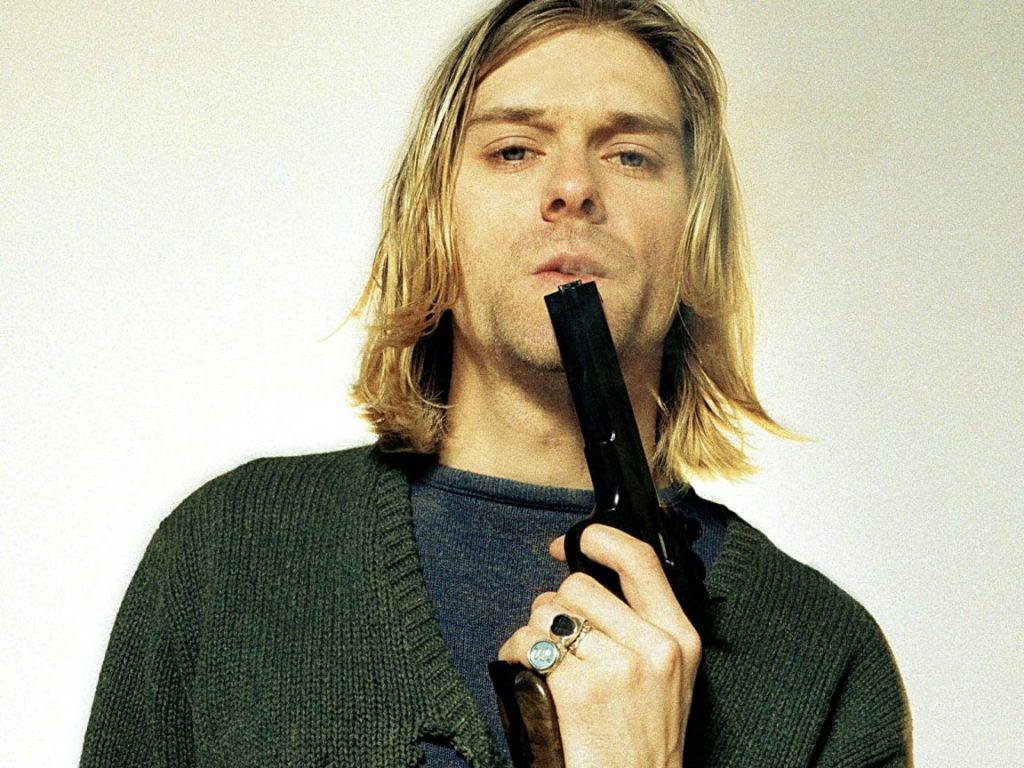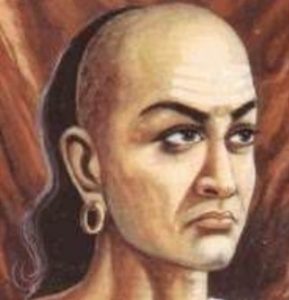“I’m not afraid of dying. Total peace after death, becoming someone else is the best hope I’ve got.” This statement made by Nirvana front-man Kurt Cobain reflects both the self-loathing and general sorrow, or anguish, that he felt he was constantly suffering from and ultimately what led to the tragic event that occurred on April 5, 1994. Kurt Cobain, the lead singer of the band Nirvana, was born in Hoaquiam, Washington on February 20, 1967.1 Few honestly know of the struggles Kurt had to endure in his life, such as his parents’ divorce when he was about nine. This break-up resulted in Kurt losing a permanent place of residence, leaving him in a constant state of borderline homelessness. As a matter of fact, Kurt even resorted to staying at the hospital where he was born around the age of nineteen.2 Regardless, Kurt still managed to climb from rock bottom to become the star he was: the lead singer of Nirvana and the face of grunge music for many people worldwide.

Of course, Nirvana didn’t come straight out the gate making hits nor score international shows. The band Nirvana actually had quite a macabre or fuzzy rise in comparison to other bands. Interestingly enough, Nirvana didn’t even start off being called Nirvana. This small trio actually bounced around with abstract names for quite a few years. From their humble beginnings in Aberdeen, Washington, in 1987 the band was known as Skid Row, Pen Cap Chew, and Bliss all within the same year.3 They played a few house parties and even fewer shows at real venues around the Aberdeen area, but the band life was more of a hobby to the group. They had fun doing what they did, played their hearts out when they had to, but they didn’t really think they were going to be anything huge when they first started out.
The group may have started small, but the effort and time they put into the band would soon enough pay off. In 1989, they released their independent album Bleach, which got them a lot more shows in lots of new places. The band finally started “blowing up” and gathering many followers nationwide. With this newfound momentum, Nirvana signed with Geffen Records and released their second album Nevermind, which has since become legendary. This was just two years after their first independent album Bleach was released.4 Nevermind kicked off Nirvana’s international rise to a new high, scoring them not only shows around the country, but in other countries as well. Nirvana went global and this new, dissonant, and muddy type of rock music started receiving mainstream recognition. This new and quickly popular genre became known and recognized as grunge, a form of punk rock with the muddy sounds of post-punk mixed with a sprinkle of youthful angst.5 This new genre became the sound of the ’90’s, with many bands such as Soundgarden, Pearl Jam, and Alice in Chains riding the wave. But for many worldwide, songs such as “Smells Like Teen Spirit” or most of the songs from Nirvana’s Nevermind album became grunge anthems that depicted the youthful rebellion and dissonance reflected in grunge music.6

Although Nirvana was finally blowing up and rising to international fame quickly, the lead singer Kurt Cobain was still not truly satisfied with his life. Throughout his life, Cobain constantly suffered from stomach illnesses. In response to this constant illness, Kobain would abuse drugs like heroin, claiming it would cure this problem. Even worse, when Kurt met his soon to be mother of his child Kourtney Love, his heroin abuse only got worse.7 With more money and fame, his addiction grew stronger and the pressures of fame and fortune began mounting on his shoulders, until one day it was just too much. In 1994, while on tour in Europe, Kurt had to be hospitalized for drug overdose and other health issues including alcohol problems. Soon after, he was forced to cancel the tour and return back home to Seattle. His family and friends decided to stage an intervention and convince him to admit himself into rehab, much to his displeasure. This rehabilitation did not last long, as Kurt decided to flee the rehab center and return back home to Seattle, tragically unbeknownst to his family and friends. On April 8, 1994, an electrician found Kurt Cobain’s dead body in a room above the garage above his home where he was hiding out at.8 The cause of death was a self-inflicted shotgun blast to the head, and even worse, heroin was found in his system so it’s not even clear if Cobain really meant to do that to himself or if the drugs influenced him to do so.9
Cobain’s inconceivable and unanticipated death resulted in worldwide mourning over the loss of this young artist’s life. Family and friends, especially his girlfriend and daughter, were heavily affected by this tragedy, as well as all of his listeners. Cobain was an icon for Generation X. He gave voice to the youthful generation of people that felt they were dealt a bad hand. He encouraged the generation, and became “the poster boy for grunge.” After Kurt’s death, the grunge scene died down quickly. Of course, there were still other bands in the genre putting out a few successful albums, but the genre never saw the fame and glory it had during its heyday in the early ’90’s, when Nirvana was contributing to the movement.10 The genre died out as quickly as it was born, with the untimely and very unfortunate death of a very talented and tormented young artist.
- Salem Press Biographical Encyclopedia, 2013, s.v. “Kurt Cobain,” by Delbert S. Bowers. ↵
- Nick Soulsby, I Found My Friends: The Oral History of Nirvana (New York : Thomas Dunne Books/St. Martin’s Griffin, 2015). 7. ↵
- Salem Press Encyclopedia, 2013, s.v. “Nirvana (music),” by Alan Haslam; Nick Soulsby, I Found My Friends: The Oral History of Nirvana (New York : Thomas Dunne Books/St. Martin’s Griffin, 2015), 1-18. ↵
- Salem Press Encyclopedia, 2013, s.v. “Nirvana (music),” by Alan Haslam. ↵
- Baker’s Biographical Dictionary of Popular Musicians, 2004, s.v. “Grunge: A Brief History of a Hard Rock Genre,” by Gil Kaufman. ↵
- Baker’s Biographical Dictionary of Popular Musicians, 2004, s.v. “Grunge: A Brief History of a Hard Rock Genre,” by Gil Kaufman. ↵
- Salem Press Biographical Encyclopedia, 2013, s.v. “Kurt Cobain,” by Delbert S. Bowers. ↵
- Salem Press Biographical Encyclopedia, 2013, s.v. “Kurt Cobain,” by Delbert S. Bowers. ↵
- Salem Press Encyclopedia, 2013, s.v. “Nirvana (music),” by Alan Haslam. ↵
- Baker’s Biographical Dictionary of Popular Musicians, 2004, s.v. “Grunge: A Brief History of a Hard Rock Genre,” by Gil Kaufman. ↵



112 comments
Eliezer Leal
Nirvana is a great band, to this day I listen to their music, the songs produced by the band while Kurt was its singer were amazing. Many people say that if you listened to the words in some songs that you could pull messages or cries for help from Kurt and people say if they had listened more carefully maybe they could’ve saved Kurt. I understand that no everyone likes to ask for help, that it can be seen as a weakness but really asking for help takes a lot of courage. People can be very prideful or very analytical of the situation they are in, moreover this can cause them to throw asking for help out the window as an option. Asking for help can be very difficult and I understand that but if people feel like they need help they should not be afraid to ask for it especially if you intend to ask someone that cares for you.
John Estrada
Nirvana is one of my favorite bands ever, with “The Man Who Sold the World” being my favorite song of all time. I’ve done an essay on whether or not Kurt killed himself so I admit your research and retelling of his life is spot on! From the abandonment, the stomach pains, heroin addiction, and depression. There’s a lot to include to that are more behind the scenes! For instance, when Kurt “attempted suicide” before being hospitalized, he claims was an accident when taking his stomach medication. Lastly, you’re spot on with his death! Kurt was actually drugged more than enough to overdose and kill a man: whether it was suicide or murder, why would a man inject himself with enough heroin to kill himself, yet still shoot himself let alone have the strength?
Leopoldo Martinez-Milland
This article was a great read that dives deep into the history of Kurt Cobain. I’ve never realized how far back his depression initially started and that his parent’s divorce was instrumental to that depression. Another thing is that I’ve only thought of Cobain as more of a Grunge/Rock N’ Roll icon, but seeing how much of an impact Cobain had with his rebellious personality and influential music, I could wholeheartedly agree with Kailan Pena’s comments of Cobain being an an icon for Generation X. His legacy has left him as an influence to not only Gen X, but to Millennials and even to Generation Z (to a smaller extent) as well.
Bianca Villarreal
Growing up I always heard Nirvana’s music without knowing who the artist actually was. Most of it due to my mom and my uncles playing it. I knew the general story of Kurt Cobain and how he committed suicide and of course the conspiracy theories that come with it, but never did I hear about their origin story. How they went through multiple names or how they were the ones who actually started the genre of grunge. I think they have such a big impact on music is because it’s rare to see bands now start from absolutely nothing, something organic. A lot of bands and artists now are made on TV shows or through companies or have grown up in the scene. I also think that’s why The Beatles, Mötley Crüe, and other iconic bands are remembered despite the difference in music genre. I’m not saying artists from this generation aren’t good; I love a lot of artists from recent years, even some that are constructed for the music industry, and there are a few artists that fit the organic criteria. It’s the fact that the bands and artists remembered, are remembered for the reason of them being raw and making some type of mark in music history.
Angelina Gonzalez
I have always been a big fan of Nirvana, my personal favorite song from the band is Heart Shaped Box. It is very saddening how someone so young and so talented is no longer here on this earth anymore. However it’s amazing how his voice is still heard to this day, even after twenty-five years. I think what made him so admirable was his passion and how he went through some struggles others have experienced as well. I enjoyed this article and learned something new about the band and its multiple names.
Michael Lazcano
Nirvana was always a household name when I was growing up, even though the singer had already passed away their music would still be playing on radios and such. To say grunge is dead I think is untrue, sure it doesn’t have the same mass appeal it has in the 90’s but its still everywhere. I also think you didn’t give the other bands mentioned in the article much credit for they too have reached a status of greatness, going on to attaining platinum records, and some of them still recording music to this day. Kurt Cobain was truly a great writer with unlimited potential there is no doubt about it, its sad that his fame only made his drug problem worse. There are also some theories and evidence that Love may have influences Kurt’s suicide but I’m not sure if you didn’t want to discuss that or not. The pressure of fame seems to be too much for some people, some of them didn’t even really want It to begin with. If Nirvana never made it as a breakout band you have to wonder would Kurt still be alive, and would the bands he helped influence be playing today? I suppose we will never know.
Jose Chaman
We have all heard at least two songs from Nirvana. Like many, I began to listen to Nirvana with his mainstream hit “Smells Like Teen Spirit.” Although Cobain’s musical career is great, as a model of life he fails. I understand all the suffering he went through (that is reflected in almost all his songs), but drug abuse is not justifiable in any way. This shows that family support is key to being able to excel in life healthily. Kurt Cobain will always be a grunge legend, and thanks to this article I could understand a little more about its history and its decisions.
Briana Montes
I would listen to Nirvana a lot growing up and when I heard he killed himself it was very surprising and hard to hear. Reading this brought back memories and helped me understand more about his death. I didn’t realize that he would go through so much or had a heroin problem. It was tragic that he shot himself especially on drugs because the drugs could’ve been the thing that made him do it.
Bruno Lezama
I’ve listen Nirvana because of their song “Smells Like Teen Spirit” which I used to play it with my garage band. It is impressive how even though Kurt Cobain’s family problems, he continued his music career. As every young singer, he started performing in house parties and fewer shows at real venues around the Aberdeen area. But then, thanks to his album “Nevermind”, he performed in big concerts around the world. It was sad to know that Kurt Cobain was addicted to the heroin and he kill himself under the influence of this drug. I can’t believe that is not clear if Cobain really meant to kill himself.
Malik Heard
The article was fun to read because it had some interesting information that I never knew like the fact that Kurt Cobain had a kid and that nirvana basically created a genre of music .I don’t really listen to rock music but I have heard of Kurt Cobain because he is mentioned in a few rap songs and inspires some rappers for there own music.